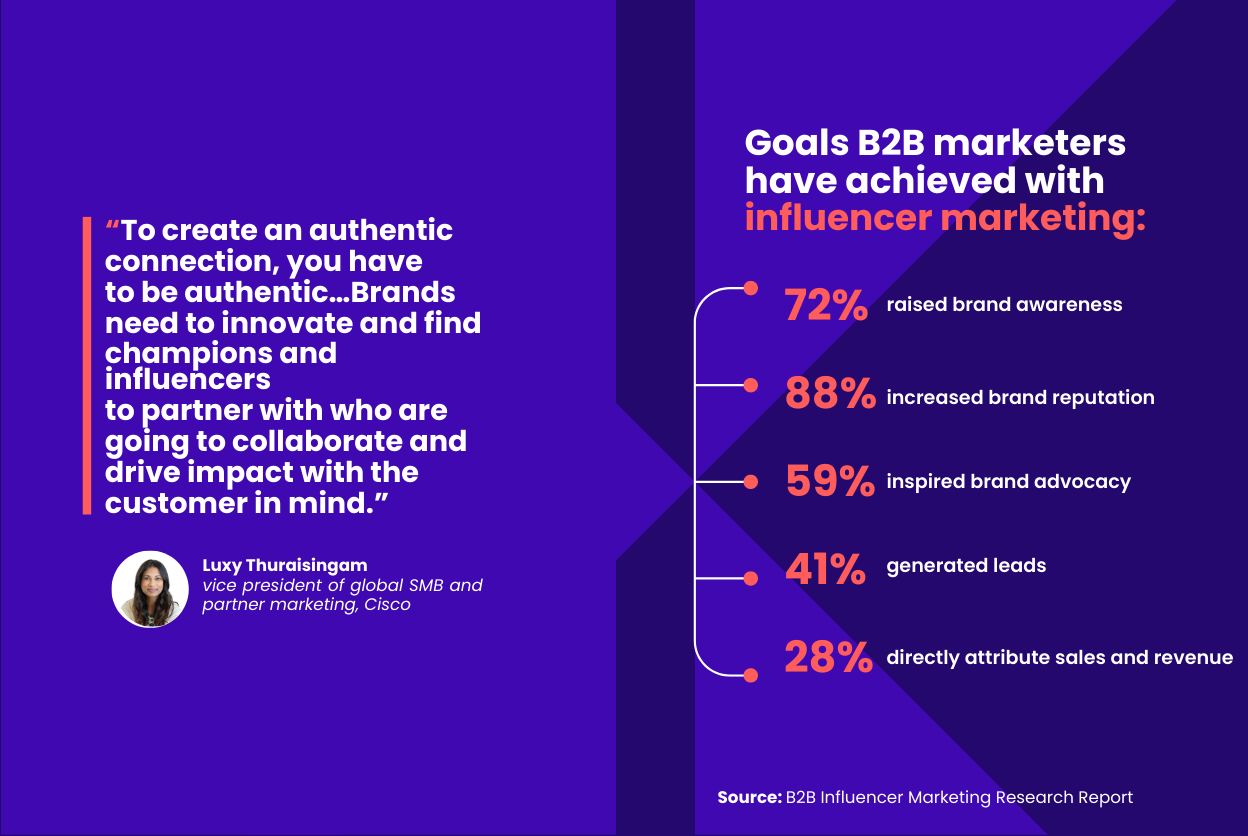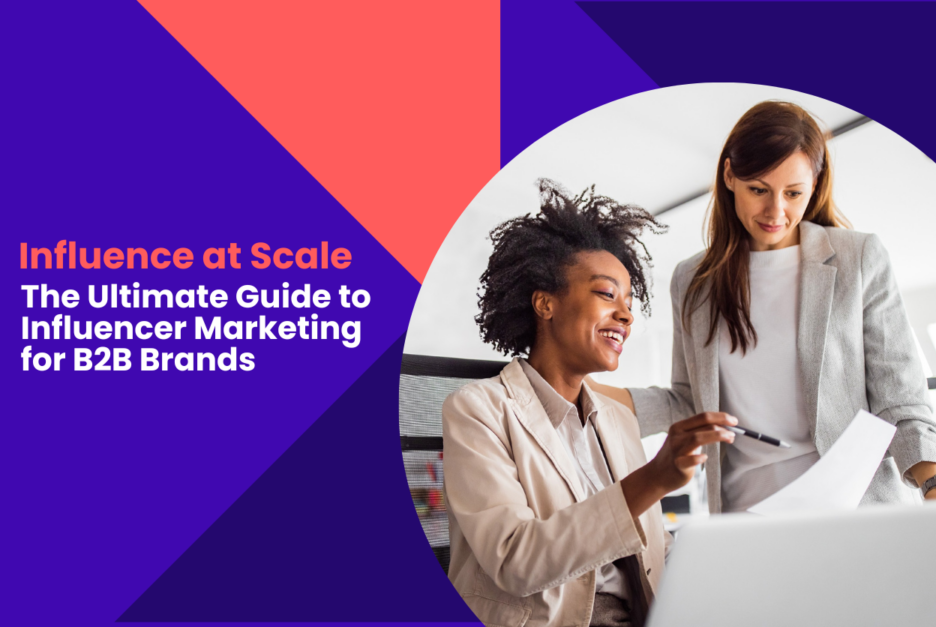As an unapologetic Star Trek nerd, I can’t think of the word “enterprise” without imagining this:
The Enterprise is a massive ship with a wealth of resources and a host of crew to make it run. It may not be as maneuverable or quick as a shuttlecraft, but it makes up for it in power, stability and longevity.
For anyone working in an enterprise-level business, that description should sound familiar. There are advantages and disadvantages to being one of the biggest companies in the world, just like being one of the biggest ships in Starfleet.
When our team at TopRank Marketing talks about B2B brands, we think of enterprise brands as the biggest and most influential global brands that have 500+ employees and/or annual revenue of $1B+.”
Our crew has been working with top B2B brands like this for decades now. We’ve helped flagships like Adobe, Dell, and LinkedIn to develop influencer marketing programs tailored to their specific challenges and opportunities.
We’ve distilled all that experience into a new handbook, for B2B marketers: Influence at Scale: The Ultimate Guide to Influencer Marketing for B2B Brands.
Here’s a quick overview of what SCALE means for influencer marketing for B2B brands:
- S is for Strategy
- C is for Collaboration
- A is for Authenticity
- L is for Long-Term Relationships
- E is for Experience
S is for Strategy
For B2C marketers, influencer engagements tend to be one-off endorsement deals. In B2B, influencer marketing needs to be as strategic as everything else you do. With the right strategy in place, influencers can drive results across the entire marketing funnel, all the way to generating revenue.
In our survey of B2B marketing leaders, 41% said they generated leads with influencer marketing, and 28% can directly attribute sales and revenue to their efforts. These numbers may be low now, but they prove what’s possible.
A full-funnel influencer strategy should create a logical progression from influencer-promoted social messages to ungated assets to lead gen forms (or demos) to revenue.
Our client Adobe saw a 150% boost in form completion rates on LinkedIn with their influencer co-created content—proof positive that lead gen and influencer marketing go together.
C is for Collaboration
The most successful influencer marketing programs are collaborative efforts. That means co-creating content with influencers to make something awesome that everyone is excited to promote. True collaboration helps influencers feel a sense of ownership with what they’re sharing.
Large brands have a unique opportunity for collaborating with influencers: In-person events. In our research, enterprise marketing leaders said these events were their most successful tactic.
You can collaborate with influencers during your own event, or one your brand attends or sponsors, by:
- Inviting them to lead a panel or discussion
- Conducting live interviews with speakers or attendees
- Liveblogging or live-posting on social media platforms
- Providing expert analysis after the event
A is for Authenticity
For B2B marketing, your most influential experts aren’t necessarily those with the highest follower count. You could pay Taylor Swift to promote your supply chain logistics solution. But your target audience isn’t likely to be swayed by her endorsement.
Resonance and relevance are more important than raw follower count when it comes to B2B influence. It takes special effort to find genuinely influential thought leaders who are meaningful to your potential customers. Influencer identification tools can help with the process—as can working with an agency that has established relationships with dozens of B2B influencers.
It’s important to look within the company for influential folks as well. In our report, 72% of respondents say they work with their internal executives to grow thought leadership.

L is for Long-Term Relationships
It takes a lot of effort to launch an influencer campaign. You have to identify influencers, get their attention, and nurture a relationship before you can begin to create content together. An always-on, long-term program reduces the overhead for each campaign or asset you launch.
Our research found that 100% of those with ongoing programs reported success, with 31% reporting their program was very successful. For comparison, 24% of campaign-based folks said their programs were not successful, and only 19% said they were very successful.
Look to build a community of influencers as part of your long-term plans. That means providing a platform for influencers to network with each other, as well as interact with the brand and your audience.
E is for Experience
There are unique challenges to influencer marketing that most B2B marketers haven’t faced before. These include qualifying and activating influencers, securing C-suite support, and making the business case for investment in the program.
One way to overcome these obstacles: work with an experienced agency. TopRank Marketing (for example) helped shape B2B influencer marketing into a discipline with strategies, tactics and best practices that make it more effective. We have long-standing relationships with dozens of B2B influencers, experts and thought leaders. And we can help you make a business case with proven results from major B2B brands.
Ready to get started? Contact us today.
Ready to learn more? Grab your copy of:



